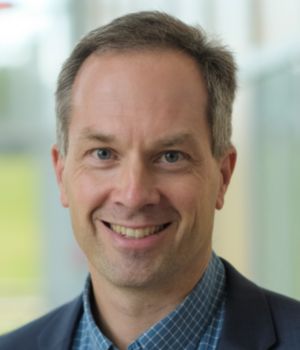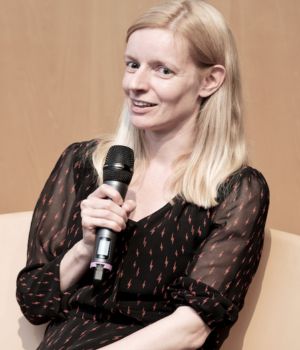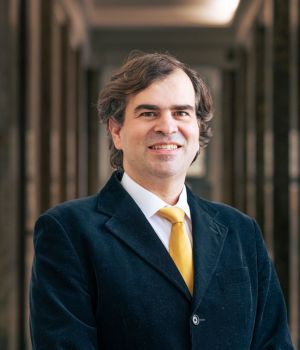Keynotes
The conference will include keynote talks by distinguished speakers from industry and academia.
Human-Interactive Robot Learning in Daily Environments – A Path Toward Situated Intelligence
Abstract: As robots enter our daily environments, they will need to work for people but also learn interactively from human input. the umbrella term Human-Interactive Robot Learning (HIRL). Integration of a variety of interaction modalities, such as visual recognition of social interactions, objects and people, localizing and recognizing sounds and speech, using gesture and non-verbal cues is important for natural interaction. We have designed an open-source interactive robot platform to facilitate prototyping of advanced interaction capabilities. In this talk, we will present how embedded deep neural networks are used for on-line processing of visual and audio data, creating the foundation on which the robot can developed its own representation of the world by observing and by interacting with people in their daily living environments. For instance, we will present how visual and audio recognition can enhance dialogue with a conversational agent, to create engaging and situated interactions. We will also explain how loop closure detection, a concept used in navigation and mapping, can be transposed to detect patterns from observing people, to derive preferences and habits.
François Michaud
Full Professor at Université de Sherbrooke

François Michaud, Ph.D., is an engineer and full professor in the Department of Electrical and Computer Engineering at the Université de Sherbrooke, in Québec Canada. Holder of the Canada Research Chair in Mobile Robotics and Intelligent Autonomous Systems (2001 to 2011), his research activities are aimed at integrating intelligent autonomous robotic systems into everyday operating conditions, to improve the well-being of people. His expertise is in human-robot interaction, assistive robotics, telepresence robotics, robot design and cognitive robotics. He has extensive experience in initiating and conducting interdisciplinary and intersectoral research projects involving collaborators in physiotherapy, occupational therapy, agriculture, child psychiatry, education, cognitive science, manufacturing, arts and automotive. He is the founding director of the Interdisciplinary Institute for Technological Innovation (3IT) (2008 – 2015), co-founder of Robotique FIRST Quebec (2010 – ), founder of Quebec Strategic Cluster INTER (Interactive Technologies in Rehabilitation Engineering) (2011 – ), and co-founder of a graduate training program CoRoM (COllaborative RObotics for Manufacturing).
From Transparency to Agency: Interactive Explanations for User Empowerment
Abstract: TBA
Katrien Verbert
Associate Professor at KU Leuven
Katrien Verbert is professor at the Department of Computer Science at KU Leuven. She obtained a doctoral degree in Computer Science in 2008 at KU Leuven, Belgium. She was a postdoctoral researcher of the Research Foundation – Flanders (FWO) at KU Leuven. She was an Assistant Professor at TU Eindhoven, the Netherlands (2013 –2014) and Vrije Universiteit Brussel, Belgium (2014 – 2015). Her research interests include visualisation techniques, recommender systems, explainable AI, and visual analytics. She has been involved in several European and Flemish projects on these topics, including the EU ROLE, STELLAR, STELA, ABLE, LALA, PERSFO, Smart Tags and BigDataGrapes projects. She is also involved in the organisation of several conferences and workshops (program chair IUI 2025, program chair RecSys 2024, general chair IUI 2021, program chair LAK 2020, general chair EC-TEL 2017, program chair EC-TEL 2016, workshop chair EDM 2015, program chair LAK 2013 and program co-chair of the EdRecSys, VISLA and XLA workshop series, DC chair IUI 2017, DC chair LAK 2019).

Invisibles: A New Frontier in Biomedical Signal Acquisition and Processing
Abstract: An important part of clinical triage methods continues to be mostly bound to hospital and momentary data acquisition settings. Still, a paradigm shift is emerging, in which everyday technology is increasingly capable of measuring relevant biomedical signals in a more pervasive manner. This is paving the way for systems that can better analyze and adapt to perceived changes in the health status or behavior of the user. In this lecture we will characterize the current landscape of data acquisition and signal processing methods, describe state-of-the-art work developed towards what has been coined as the ”invisibles” approach, and provide a discussion of the main challenges posed by these new methodologies. Experimental results show that data acquired using such an approach is highly correlated with data obtained through conventional methods. This lecture will show real-world examples of devices integrated into everyday use objects with which users regularly interact with.
Hugo Plácido da Silva
Invited Assistant Professor at Instituto Superior Técnico (IST)
Senior Researcher at Instituto de Telecomunicações

Hugo is an award-winning inventor, researcher, and entrepreneur, having co-founded multiple innovative technology-based companies, operating in the fields of biomedical devices and data science for healthcare and quality of life. He obtained his Habilitation in Biomedical Engineering and completed his PhD in Electrical and Computers Engineering both from the Instituto Superior Técnico (IST), University of Lisbon (UL), where he is currently an Invited Assistant Professor. Hugo is also a Senior Researcher at the IT – Instituto de Telecomunicações, to which he is affiliated since 2004.
Both at a technical and scientific level, he has actively contributed to and participated in more than 60 national and international projects, funded by grants from Horizon Europe, Portugal 2030, Fundação para a Ciência e Tecnologia (FCT), and several other private and public institutions (e.g. Vodafone, Nokia, and others). Hugo has 10 granted patents and published 270+ papers in peer reviewed journals, international refereed conferences, and book chapters.
Hugo is an IEEE Distinguished Lectured since 2025, IEEE Senior Member since 2018, and IEEE Member since 2010, affiliated with the IEEE Engineering in Medicine and Biology Society. Furthermore, he is an active member of the IEEE Portugal Section, where he is currently Vice-Chair of the IEEE EMBS Portugal Chapter. More recently, he has also been appointed Member of the European Laboratory for Learning and Intelligent Systems (ELLIS) / Lisbon Unit for Learning and Intelligent Systems (LUMLIS).